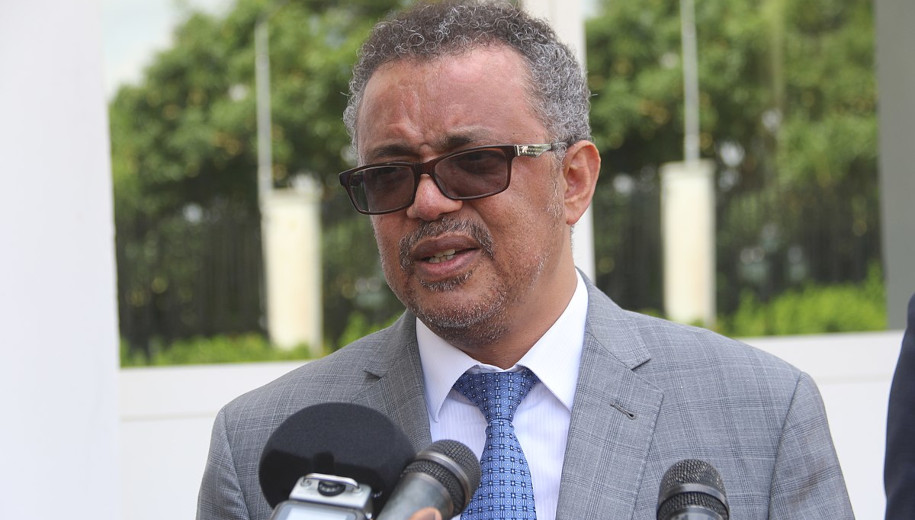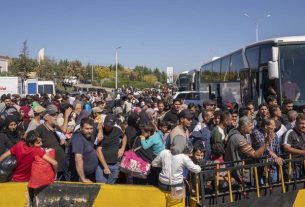Sana’a, Yemen – December 26, 2024 — A United Nations (UN) team, led by Dr. Tedros Adhanom Ghebreyesus, the Director-General of the World Health Organization (WHO), was caught in a deadly airstrike earlier today while preparing to depart from Sana’a International Airport in Yemen. The attack, which took place around two hours ago, resulted in significant damage to the airport, leaving at least two people dead and several others injured, including a crew member of the UN delegation’s plane.
Dr. Tedros confirmed that while his team and other WHO colleagues were unharmed, the strike caused severe destruction to the airport’s infrastructure, including the air traffic control tower, departure lounge, and parts of the runway. The team was in Yemen on a mission to assess the ongoing health and humanitarian situation and to negotiate the release of UN staff members detained in the region.
In a statement issued shortly after the attack, Dr. Tedros reported that the airport’s runway and key facilities had been damaged, requiring repairs before the delegation could leave. Despite the challenging situation, Dr. Tedros reassured the public that he and his colleagues were safe, while extending heartfelt condolences to the families of the victims who lost their lives in the bombing.

Escalating Conflict in Yemen
The attack on Sana’a Airport underscores the continued instability in Yemen, where a brutal civil war has ravaged the country for nearly a decade. The conflict, which began in 2014, has led to widespread humanitarian crises, including severe health impacts, as well as displacement of millions of Yemenis. Humanitarian organizations like WHO have been at the forefront of providing aid to those affected by the conflict, despite the volatile and dangerous environment.
Yemen’s health system has been decimated by the ongoing violence, with shortages of medical supplies, critical personnel, and infrastructure. The WHO mission in Yemen has been vital in assessing and addressing these dire needs. However, the security situation remains precarious, and incidents like today’s airstrike highlight the risks that humanitarian workers and organizations face in delivering aid.
Tensions and Humanitarian Challenges
The WHO team’s visit was primarily focused on understanding the humanitarian crisis, including the urgent medical and health needs of the civilian population. Additionally, the mission aimed to secure the release of UN staff members detained in the region. While no official statements have been made about the identities or circumstances of these detainees, the UN has consistently called for their immediate release as part of broader efforts to ensure the safety of humanitarian workers.
The airstrike at the airport today represents the latest in a series of attacks on critical infrastructure in Yemen, further complicating efforts to deliver aid and assess the ongoing needs of the population. The UN, alongside other international bodies, continues to call for an end to attacks on civilians and humanitarian personnel, emphasizing that the delivery of essential aid must be prioritized.
A Call for Accountability and Peace
In light of the ongoing violence, Dr. Tedros and other international leaders have repeatedly called for renewed efforts toward a peaceful resolution to the conflict. The humanitarian situation in Yemen remains dire, with millions of Yemenis facing hunger, disease, and the collapse of basic services. The attack on Sana’a Airport serves as a stark reminder of the dangers that humanitarian workers face and the critical need for accountability in ensuring the safety of civilians and aid personnel.
As the UN continues its mission in Yemen, efforts will focus on securing the release of detained staff members and addressing the immense health challenges in the region. While the situation remains fluid, the attack today has once again brought the urgent need for international cooperation and peacebuilding to the forefront.
Conclusion
The airstrike at Sana’a Airport marks a somber moment in the ongoing conflict in Yemen. While Dr. Tedros and the WHO team remain safe, the attack highlights the precarious environment in which humanitarian workers operate. The WHO remains committed to its mission in Yemen, and the international community continues to call for peace and protection for both civilians and aid workers in the region.


